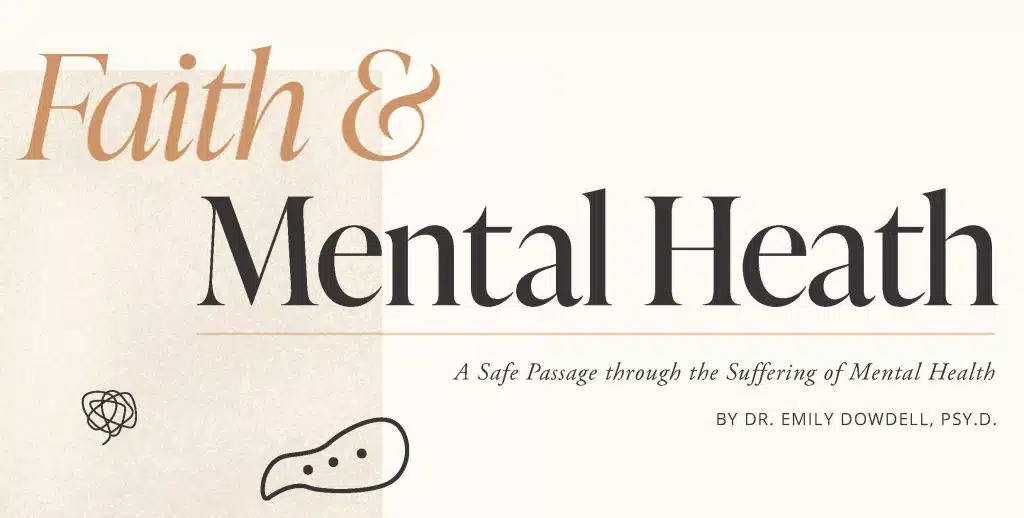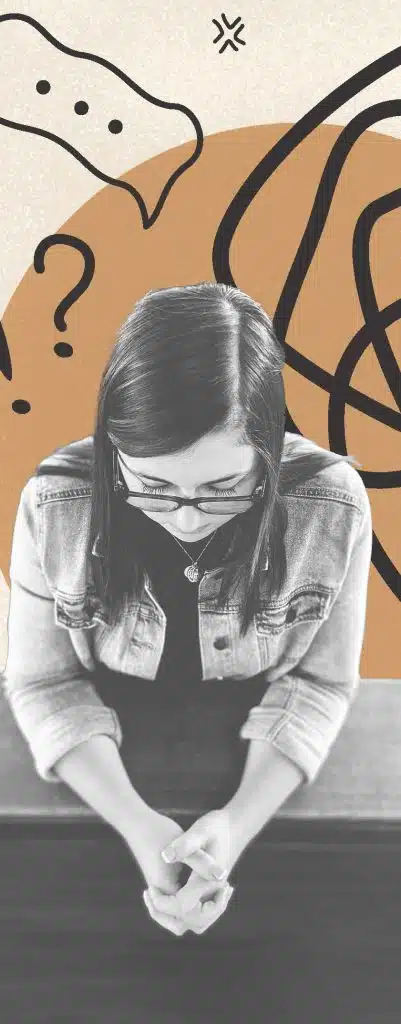Faith and Mental Health

 People who struggle with depression and anxiety walk around casually carrying emotional wounds that if they were physical would probably require emergency surgery! Yet, they often act as if they are not injured. Somehow this feels easier than acknowledging the reality of the wound. Perhaps because deep down there is an awareness of how painful the healing process can be. However, when it comes to suffering, the amount of energy we devote to escaping or suppressing the pain actually makes it worse. When we struggle against the reality of our situation, we ultimately intensify and prolong our distress.
People who struggle with depression and anxiety walk around casually carrying emotional wounds that if they were physical would probably require emergency surgery! Yet, they often act as if they are not injured. Somehow this feels easier than acknowledging the reality of the wound. Perhaps because deep down there is an awareness of how painful the healing process can be. However, when it comes to suffering, the amount of energy we devote to escaping or suppressing the pain actually makes it worse. When we struggle against the reality of our situation, we ultimately intensify and prolong our distress.
So, what do we do then if we’re not to minimize, suppress, or deny our suffering? Many Catholics turn to prayer with the hope and expectation that God will resolve our distress. Taking this approach, we might be tempted to think that if we are still struggling with anxiety or depression after a prayer session, we must be lacking in faith.
In an America Magazine article entitled “I thought Good Catholics didn’t need therapy. Then I went,” Simcha Fisher wrote,
“All my life, true holiness felt unattainable to me. I wanted to master my vices, to be selfless and to turn the other cheek, to fill my days with prudence, justice, temperance, fortitude, faith, hope and love. But it is hard to pursue virtue when you are quaking with anxiety, mired in depression, or paralyzed with petty rages. And by ‘hard,’ I mean it is impossible. How do you rejoice in the Lord always when you cannot stop crying? How do you forgive when you do not know how to stop replaying an insult on an endless loop? How do you die to self when you’re not completely sure who that self is? How do you thank God for God’s goodness when feeling good makes you feel guilty? How do you thirst after eternal life when the only thing that appeals to you is death?”1
Simcha Fisher might be on to something. How can we grow in holiness and move toward God if we have psychological or emotional baggage holding us back. If we think it is merely a spiritual issue, we might believe we should be able to pray our symptoms away. However, when we approach prayer as an immediate solution to suffering, we may not get the results we expect, and we might be missing the point.
In situations of prolonged suffering, call to mind the Israelites wandering in the desert, slowly working their way toward the Promised Land. After much wandering, they express their concern about the lacking bounty of food and water, wondering if they would have been better off in Egypt. Thinking that, although they were enslaved, at least they had some semblance of security there! But the Lord does not want us to trust anyone but Him with our provision.
The Lord looks down on their lack of faith. He sends fiery serpents among the people, who bite them, and many of them die. Now that their situation worsened, the people return to Moses, expressing remorse for their complaints. They were looking to God to take the serpents away. Moses prayed for them and the Lord instructed Moses to “‘Make a fiery serpent, and set it on a pole; and everyone who is bitten, when he sees it, shall live.’ So Moses made a bronze serpent, and set it on a pole; and if a serpent bit any man, he would look at the bronze serpent and live” (Num. 21: 9-10).
In this passage, the Lord does not take the snakes away. He uses the source of pain and fear as an opportunity to challenge and deepen faith. To move through life’s difficulties, we must trust that the pain and suffering we endure is somehow, in His design, forming us. The safe passage through these dark, dangerous, and difficult landscapes is to look at the suffering and trust that He will see us through it.
But what happens when even prayer becomes a source of pain and suffering. What happens if we are anxious about our relationship with God? Or feeling overwhelmed with sadness, wondering where God was in the midst of our suffering? If we cannot bring these feelings to God and relate them to Him in prayer, we might consider psychotherapy.
A therapist, especially one versed in a Catholic view of the person, will be able to walk with you in these dark periods of life. The therapist might help you recognize the obstacles in your path and help you regain the freedom needed to pursue virtue and trust in the Lord’s divine providence.
1Fisher, S. (2017, May 18). I thought good Catholics didn’t need therapy. Then I went. America Magazine. Retrieved February 19, 2023, from https://www.americamagazine.org/faith/2017/05/18/i-thought-good-catholics-didnt-need-therapy-then-i-went
This article appeared in the April 2023 edition of The Catholic Telegraph Magazine. For your complimentary subscription, click here.













